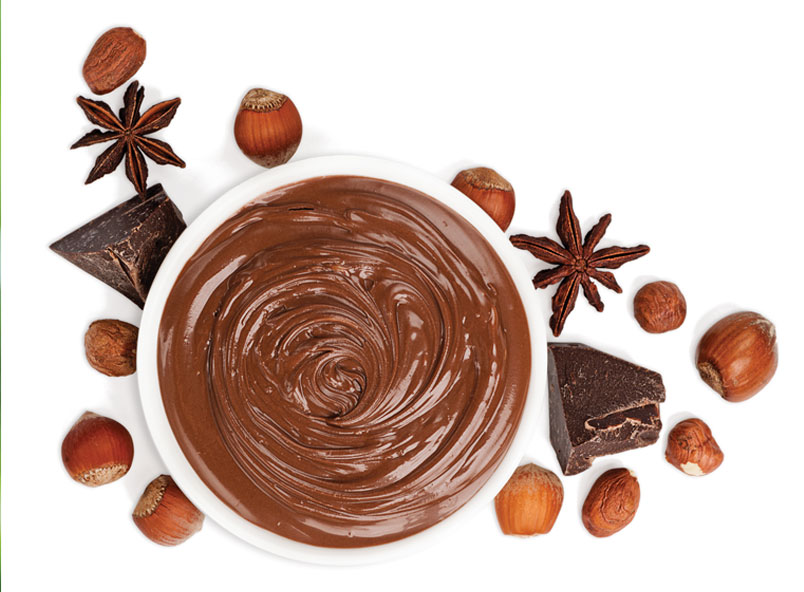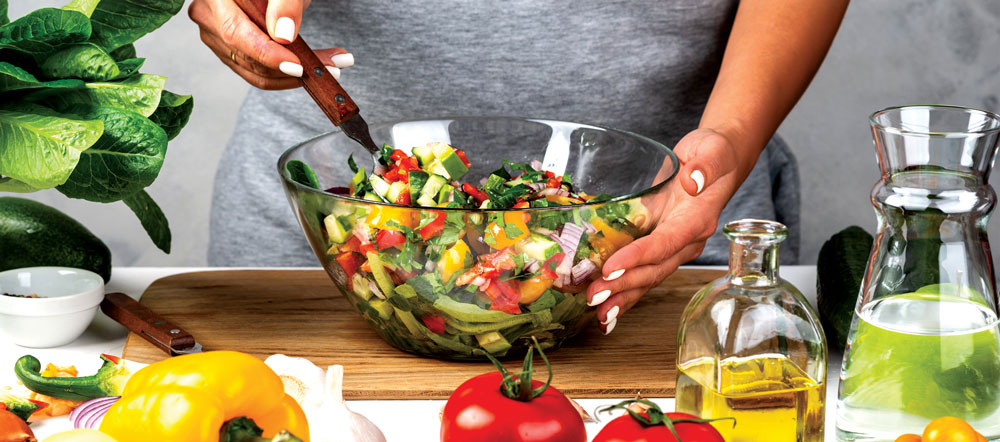



Its use is gaining traction
February, 2020 in Issue 1 - 2020, Markets
In the first half of 2019, an increasing number of products with the ‘palm oil-free’ (Ohne Palmöl) claim/label began appearing in the German retail market. Until then, Germany had been among EU member-states in which the claim was not commonly used.
One of the first products to display the label was the La Crema chocolate spread by the Italian manufacturer VALSOIA. Other spreads not containing palm oil were not labelled with the claim as yet.
However, as experience has shown in Belgium, France, Italy and Spain, such developments soon lead to widespread use of the claim, as food businesses often feel that they face a competitive disadvantage. Sure enough, at least three other chocolate spreads and a margarine product now bear the claim in Germany, suggesting that a wave is building.
Since March 2019, the hazelnut spread Nudossi has been labelled as ‘palm oil-free’. Nudossi was already being marketed in Eastern Germany at the time of the German Democratic Republic and has been known as the ‘Eastern Nutella’. After the German Reunification, production ceased, but resumed after a break of several years in the spring of 1999. This shows the importance of this brand in the eastern part of Germany.
No fewer than 24 different varieties of Grashoff delicatessen chocolate spreads now bear a green ‘palm oil-free’ label, alongside the Xucker pistachios-coconut cream. In neighbouring Austria, the Haas Palmölfreie Nougatcreme hazelnut spread is being similarly marketed.
The Landkrone Bio Vegane margarine also bears a ‘palm oil-free’ logo. On its website, it is described thus: ‘Our new Organic Vegan Margarine from Landkrone combines sustainability and taste. High-quality shea butter instead of palm oil – this is good news for those who are looking for a palm oil-free margarine.’
Illegal claim
The ‘palm oil-free’ claim is illegal and in violation of EU law, notably of the Food Information Regulation (FIR) and the Nutrition and Health Claims Regulation, which are directly applicable in all member-states. However, the Regulations are not always properly enforced by the authorities.
In France, for example, the number of operators using the claim increased significantly over a short period – from 312 in 2013, to 666 in 2014, and to 692 by the end of 2015. The number of brands bearing such claims went up from 39 in 2013, to 60 in 2014, and to 66 in 2015.
It should urgently be brought to the attention of the German authorities why the claim is illegal.
Firstly, EU rules prohibit emphasis of the absence of an ingredient if comparable foodstuffs do not contain it. Article 7(1)(c) of the FIR provides that food information must not be misleading, particularly ‘by suggesting that the food possesses special characteristics when in fact all similar foods possess such characteristics, in particular by specifically emphasising the presence or absence of certain ingredients and/or nutrients’.
Therefore, voluntary food information, such as the ‘palm oil-free’ claim, must not suggest that the food possesses special characteristics when, in fact, all similar foods that do not contain palm oil possess such characteristics, in particular by specifically emphasising the presence or absence of certain ingredients and/or nutrients.
Additionally, since Dec 13, 2014, the specific vegetable oil used in any food products must be specified by law in the list of ingredients (such as ‘sunflower oil’ or ‘palm oil’).
Secondly, the ‘palm oil-free’ claim can be considered as misleading under Article 7(1)(a) of the FIR. When made in a nutritional and/or environmental context, the claim is usually unsubstantiated because palm oil consumption is not per se unhealthy and not all palm oil production is unsustainable.
It has become evident that the commercial practice applied by food business operators induces consumers to err, especially regarding the nutritional qualities of palm oil, as well as in the environmental context. The practice is capable of substantially altering the economic behaviour of informed and reasonably aware consumers with respect to products containing palm oil – which they might reject – and influence them in favour of products which they might perceive as being ‘better’ for health or the environment.
Palm oil, consumed as a dietary fat within a healthy and balanced diet, does not have incremental risks for human health. Within the environmental context, particularly in relation to deforestation and biodiversity, the accusations are often unsubstantiated generalisations. The example of the Organic Vegan Margarine from Landkrone ‘combining sustainability and taste’ clearly follows this deceptive approach.
Claims lacking foundation in science and factual evidence constitute misleading commercial practices, in violation of the German Law against Unfair Competition, which implements the EU’s Directive on unfair business-to-consumer commercial practices.
Thirdly, the ‘palm oil-free’ claim is deemed as not permitted under the Nutrition and Health Claims Regulation, which only allows the use of a certain number of nutrition claims that are expressly defined in its Annex. Most relevant in relation to vegetable oils and fats, including palm oil, are the ‘low saturated fat’ and ‘saturated fat-free’ claims – food business operators may use these to promote the nutritional characteristics of products.
Consumers might well interpret, and are most often led to believe, that the ‘palm oil-free’ claim is a nutrition claim – but without the product meeting specific conditions, as prescribed for the permitted claims.

Avenues for action in Germany
Malaysia’s Minister of Primary Industries, the Hon. Teresa Kok, raised the issue of the ‘palm oil-free’ claim at a meeting with German authorities in June 2019. This should only be the start of concerted efforts to halt the trend. The issue could be addressed from the food law angle, as well as the unfair competition angle in Germany.
With respect to the food law angle, an opinion could be sought from the Working Group of Food Chemistry Experts from the Federal States and the Federal Office of Consumer Protection and Food Safety. It is tasked with coordinating the control, sampling, and evaluation of food products within the monitoring authorities of the 16 Federal States.
The Working Group has been strongly involved in issues relating to the composition and labelling of food. Its resolutions have the character of expert opinions that provide important guidance to inform courts tasked with decisions in food law.
For instance, the Working Group held that a ‘gluten-free’ claim on infant formulae and follow-on formulae is misleading, as it constitutes a misleading ‘self-evident’ advertisement with a certainty since, by law, no infant formulae and follow-on formulae may contain gluten.

With respect to the element of unfair competition, economic consumer protection is mainly enforced through collective civil legal actions, in which specific qualified institutions, associations, and chambers of industry and commerce have the right to object to violations by operators and, if necessary, to file a lawsuit with the competent court.
In Germany, if consumers consider labelling or advertising as misleading, they themselves cannot take legal action against the food business operator or retailer. However, consumers can notify the Consumer Centres (Verbraucherzentralen), which are legally entitled to issue dissuasion warnings based on the German Law against Unfair Competition, requesting the operator to cease and desist.
Such a dissuasion warning typically calls on an operator to refrain from using the labelling or advertising in question and signals that the Consumer Centres may enforce this claim in court, unless a declaration of discontinuance is signed by the operator within a certain period of time. Following such warnings, Consumer Centres have standing to pursue legal proceedings in the form of collective actions in the general interest to sanction unfair competition and enforce consumer protection.
Similarly, anyone may submit a complaint to the German Centre for Protection against Unfair Competition (Wettbewerbszentrale) about any alleged competition offence. This is the largest and most influential German and cross-border self-regulatory institution for the enforcement of the German Law against Unfair Competition. It may then issue a dissuasion warning, in the event of a competition offence and in order to reach an out-of-court settlement. If such settlement is not reached, the Wettbewerbszentrale has standing to file a lawsuit against the relevant company.
Despite efforts over the years to engage at a variety of commercial, judicial, administrative and diplomatic levels, deceptive campaigns and misleading labelling practices continue to be waged in Europe against palm oil and products containing palm oil. They are largely initiated by commercial operators and competitors in a number of EU member-states.
These campaigns and practices are especially worrying when conducted using the ‘palm oil-free’ claim. With the wave of products labelled with the claim gaining traction in Germany, palm oil producers must not hesitate in acting to curb the trend.
FratiniVergano
European Lawyers